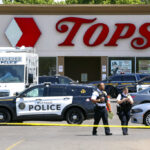The Oklahoma Supreme Court has reversed the decision of an Oklahoma Workers’ Compensation Commission administrative law judge (ALJ) and ruled that a workers’ comp claim for a slip and fall on an icy sidewalk next to an employer’s parking lot is compensable under the law.
The case involved an employee of Oklahoma State University’s Oklahoma City campus (OSU/OKC), Annette Legarde-Bober, who slipped and fell on the curb of an icy sidewalk next to the parking lot on OSU/OKC premises where she was assigned a parking space.
The Supreme Court’s unpublished decision, issued on June 28, states that OSU/OKC initially determined Legarde-Bober “was in the course and scope of her employment when she fell and provided treatment and temporary total disability benefits.”
When Legarde-Bober applied for additional workers’ compensation benefits, however, the university denied the claim, saying her injury didn’t arise out of her duties on the job. The Oklahoma Workers’ Compensation Commission’s ALJ agreed.
The state Supreme Court, however, saw things differently.
In the Court’s written opinion, it recognized that Oklahoma’s Administrative Workers’ Compensation Act (AWCA) states that “any injury occurring in a parking lot or other common area adjacent to an employer’s place of business” when an employee is not at work is not compensable. The parking lot in question, however, was on the employer’s premises, right next to the building in which the claimant worked. That was a deciding factor in the Court’s view. In the majority opinion, the Court pointed out that the definition of the term, “course and scope of employment,” in the AWCA, includes “activities conducted on the premises of an employer.”
Additionally, though she was not “clocked in” at her worksite, the injury occurred near the building where she worked, just minutes before the time that her work shift began.
“The parking lot and sidewalk were in fact on the premises of the OSU/OKC campus, which Employer admitted in the Employee Injury Report,” the Court’s decision states.
The court concluded, therefore, that because Legarde-Bober’s “actions at the time of her injury were related to and in furtherance of the business of her Employer OSU/OKC, and Petitioner was on the premises of her Employer when she fell, she was in the course and scope of her employment” as defined in the relevant section of the workers’ compensation act.
The decision was not unanimous as three of the nine Court justices disagreed with the majority’s view.
In his dissenting opinion, Justice Winchester wrote: “The Court’s opinion holds that ‘A parking lot owned or controlled by the employer alone clearly constitutes the “premises” of such employer, and is part of the “employer’s place of business.”‘ However, if the legislature has intentionally excluded the parking lot from the jurisdiction of Workers’ Compensation law, the ‘premises’ doctrine is no longer valid. The legislature has the authority and power to make such an exception. I conclude that it ‘clearly’ made such an exception.”
The case is Bober v. Oklahoma State University, Case Number: 114038.
Topics Workers' Compensation Oklahoma
Was this article valuable?
Here are more articles you may enjoy.


 Gun Accessory Company to Pay $1.75 Million to Buffalo Supermarket Shooting Victims
Gun Accessory Company to Pay $1.75 Million to Buffalo Supermarket Shooting Victims  Preparing for an AI Native Future
Preparing for an AI Native Future  Munich Re Unit to Cut 1,000 Positions as AI Takes Over Jobs
Munich Re Unit to Cut 1,000 Positions as AI Takes Over Jobs  Florida Insurance Costs 14.5% Lower Than Without Reforms, Report Finds
Florida Insurance Costs 14.5% Lower Than Without Reforms, Report Finds 

